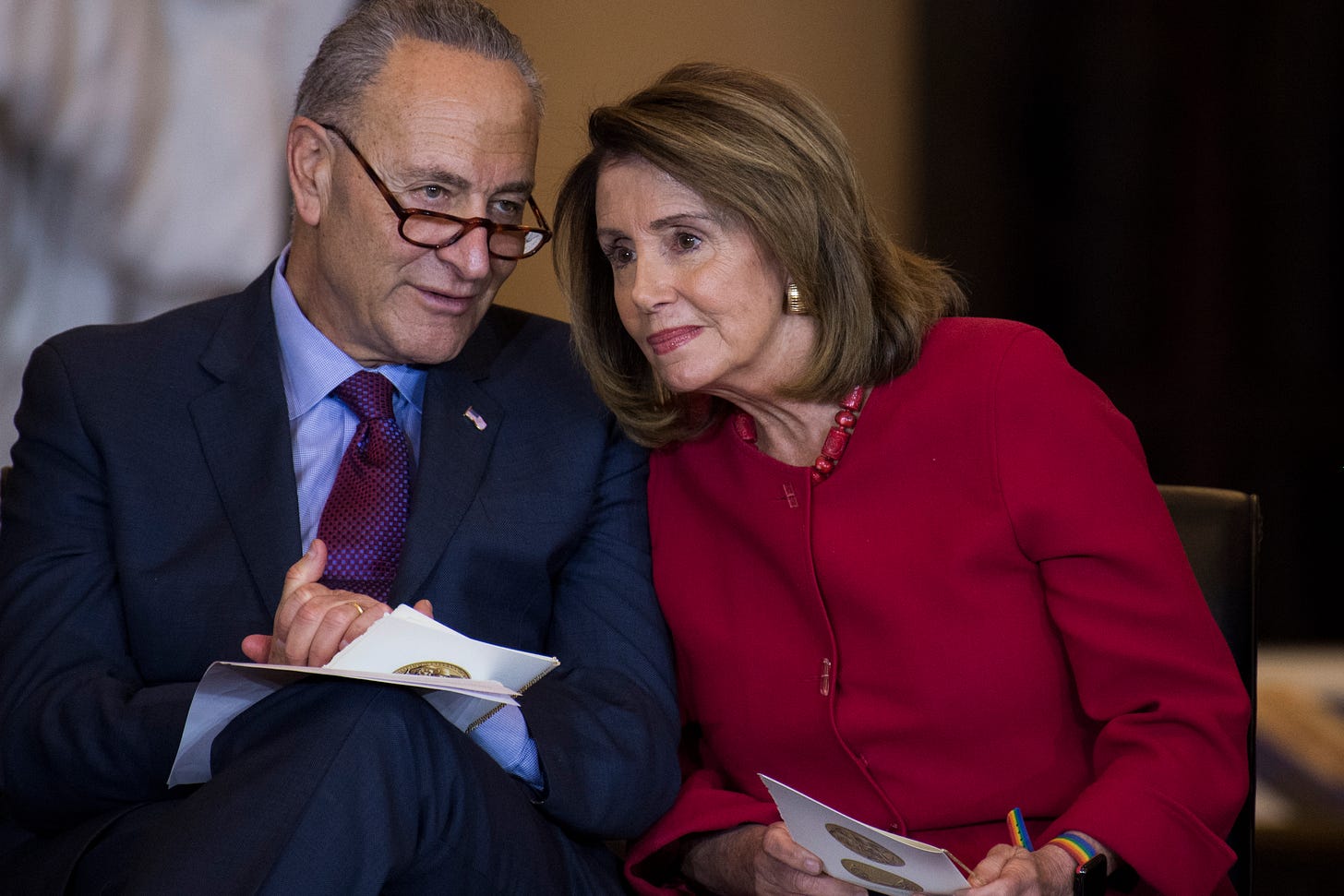All eyes are on the debt ceiling this week as Republicans in Congress position themselves once again as the party of obstruction. What ought to be a routine, bipartisan move to raise the limit on the nation’s ability to borrow—after all, it’s right there in the Constitution, Amendment XIV, that the validity of the public debt of the United States shall not be questioned—has instead become an opportunity for political hostage-taking and blame-shifting.
Republicans are in effect throwing a tantrum; because they have decided to oppose the Democrats’ budget reconciliation bill in every aspect, they have also refused to cooperate on anything budget-related such as the critical need for the country to be able to pay its obligations, including the $7.8 trillion in additional debt incurred under their watch during the Trump years. Their behavior is akin to a rowdy bunch of managers running up a huge tab in a VIP suite that the rest of the company wasn’t even allowed to enter, then dashing out to leave their co-workers holding the check.
Radical Republican senators like Ted Cruz intend to filibuster any bill that raises the debt limit, essentially forcing Democrats to put the debt ceiling (and the funding of the government itself) into the massive reconciliation bill the Republicans so despise, or to force President Joe Biden to declare the debt ceiling limit unconstitutional and look even more the part of the autocrat they claim him to be. In this, Republicans think they are being clever, but this maneuver could actually backfire badly. In fact, it truly feels like the GOP hasn’t thought this through very well.
The main obstacle to getting the massive reconciliation bill through is Senator Joe Manchin, who is on record as opposing the size of the bill because, he argues, so much new spending might lead to inflation. Manchin has taken specific issue with the speed at which the bill is being pushed through and has privately urged a “pause” on its consideration till as late as 2022. But if, thanks to the GOP, the debt ceiling is now inexorably linked to the budget bill, there is no way Congress can wait that long. In fact, sometime in October the government will run out of money, and the U.S. will risk the unthinkable: a default on its public obligations. That would throw millions out of work and hurl the economy and indeed the entire world into a new recession. By forcing Democrats to carry the debt ceiling burden alone and resolve it no later than the end of October, the GOP has undercut Manchin’s most powerful weapon: delay.
Moreover, the GOP may have handed Speaker Nancy Pelosi the very thing she needed as well. Earlier in the summer, Pelosi acceded to the demands of moderate House members to fix a date certain—September 27—by which to vote on the bipartisan infrastructure deal. It’s a bill which moderates love but of which the Progressive Caucus is wary because, among other things, it does not adequately address climate change. As the clock ticks down to September 27, progressives have warned that they will vote down the infrastructure deal unless there is a tandem deal in place on the reconciliation package that addresses their concerns. That had put Speaker Pelosi in a bind: either renege on the date she had promised the moderates or risk having the bill go down in flames from progressive resistance. She needs more time to bring the parties closer to a deal. But now that the GOP has strapped dynamite to the bills in the form of the debt ceiling, Pelosi can point to the crisis they created as the reason to take far more time than she had promised. After all, this debt ceiling nonsense wasn’t ever part of the deal before, and it complicates things considerably.
In a few weeks, the GOP might also realize that they have forced moderates in the Democratic party to either 1) support a change to the filibuster rule so that Democrats can raise the debt ceiling on their own or 2) support a reconciliation bill with a higher price tag than they would have agreed to otherwise. While Democrats had maintained prior to the GOP debt shenanigans that failure was not an option because it would hurt them politically, it is now clear that failure is not an option because it would wreck the economy. This even gives progressives a new bogeyman: They can claim they had to accept a compromise off the top-line figure because of the GOP’s dangerous games, and not because of pressure from fellow Democrats. In short, the GOP threat is the very kind of political cover that any Democratic holdouts might readily appreciate and utilize, especially when pushed to the edge of the abyss.
The GOP’s continued failure to do anything except create as much chaos as possible, score points with their base by acting like children, or own the libs for the sake of Fox News and Twitter likes has led already to disastrous consequences, including tens of thousands of unnecessary deaths from the Covid-19 pandemic. Now, with a gun pointed squarely at the economy’s head, Republicans think they can taunt their political enemies into paralysis, warning that “Democrats must go it alone or they’ll shoot!”
Would anyone be surprised if this actually helped push the Democrats to go it alone?





One can hope that is gives the moderates cover and the blame where it belongs to the GOP
Might this also give more reason to end the Filibuster?